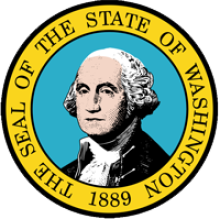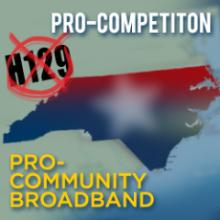Fast, affordable Internet access for all.
FTTH
Content tagged with "FTTH"
Displaying 11961 - 11970 of 12709Pro Community Broadband Bill in Washington Will Return Next Year
Pro Community Broadband Bill in Washington Will Return Next Year
Pro Community Broadband Bill in Washington Will Return Next Year
Pro Community Broadband Bill in Washington Will Return Next Year
Pro Community Broadband Bill in Washington Will Return Next Year
Public Testimony in Senate Finance Committee Against Time Warner Cable bill in North Carolina
We have again isolated individual comments from the arguments around Time Warner Cable's bill to strip local authorities of the right to build broadband networks vastly superior to their services. On April 13, the Senate Finance Committee allowed public comment on TWC's H129 bill. Craig Settles has posted an extended story about a small business struggling to get by with the existing paucity of service in her community.
There was no hope that I could efficiently communicate, collaborate, and share online documents and applications with clients and peer professionals. I couldn’t even buy a functional phone line. For years I paid for a level of service from Centurylink that I can only describe as absolutely embarrassing.
This bill will make it vastly harder, if not impossible, for communities to build the necessary infrastructure to succeed in the digital economy. Listening to those pushing the bill, it is very clear they have no conception of the vast difference between barely broadband DSL from CenturyLink and Wilson's Greenlight community fiber network -- essentially the difference between a hang glider and a Boeing 747. And many in North Carolina don't even have access to the hang glider! Yet the Legislature cares more about protecting the monopoly of powerful companies that contribute to their campaigns than ensuring all residents and businesses have access to the fast, affordable, and reliable broadband they need to flourish.
Thanks to Voter Radio for making audio from the hearing available. Each of the following comments is approximately 2 minutes long.
Public Testimony in Senate Finance Committee Against Time Warner Cable bill in North Carolina
We have again isolated individual comments from the arguments around Time Warner Cable's bill to strip local authorities of the right to build broadband networks vastly superior to their services. On April 13, the Senate Finance Committee allowed public comment on TWC's H129 bill. Craig Settles has posted an extended story about a small business struggling to get by with the existing paucity of service in her community.
There was no hope that I could efficiently communicate, collaborate, and share online documents and applications with clients and peer professionals. I couldn’t even buy a functional phone line. For years I paid for a level of service from Centurylink that I can only describe as absolutely embarrassing.
This bill will make it vastly harder, if not impossible, for communities to build the necessary infrastructure to succeed in the digital economy. Listening to those pushing the bill, it is very clear they have no conception of the vast difference between barely broadband DSL from CenturyLink and Wilson's Greenlight community fiber network -- essentially the difference between a hang glider and a Boeing 747. And many in North Carolina don't even have access to the hang glider! Yet the Legislature cares more about protecting the monopoly of powerful companies that contribute to their campaigns than ensuring all residents and businesses have access to the fast, affordable, and reliable broadband they need to flourish.
Thanks to Voter Radio for making audio from the hearing available. Each of the following comments is approximately 2 minutes long.
Public Testimony in Senate Finance Committee Against Time Warner Cable bill in North Carolina
We have again isolated individual comments from the arguments around Time Warner Cable's bill to strip local authorities of the right to build broadband networks vastly superior to their services. On April 13, the Senate Finance Committee allowed public comment on TWC's H129 bill. Craig Settles has posted an extended story about a small business struggling to get by with the existing paucity of service in her community.
There was no hope that I could efficiently communicate, collaborate, and share online documents and applications with clients and peer professionals. I couldn’t even buy a functional phone line. For years I paid for a level of service from Centurylink that I can only describe as absolutely embarrassing.
This bill will make it vastly harder, if not impossible, for communities to build the necessary infrastructure to succeed in the digital economy. Listening to those pushing the bill, it is very clear they have no conception of the vast difference between barely broadband DSL from CenturyLink and Wilson's Greenlight community fiber network -- essentially the difference between a hang glider and a Boeing 747. And many in North Carolina don't even have access to the hang glider! Yet the Legislature cares more about protecting the monopoly of powerful companies that contribute to their campaigns than ensuring all residents and businesses have access to the fast, affordable, and reliable broadband they need to flourish.
Thanks to Voter Radio for making audio from the hearing available. Each of the following comments is approximately 2 minutes long.
Public Testimony in Senate Finance Committee Against Time Warner Cable bill in North Carolina
We have again isolated individual comments from the arguments around Time Warner Cable's bill to strip local authorities of the right to build broadband networks vastly superior to their services. On April 13, the Senate Finance Committee allowed public comment on TWC's H129 bill. Craig Settles has posted an extended story about a small business struggling to get by with the existing paucity of service in her community.
There was no hope that I could efficiently communicate, collaborate, and share online documents and applications with clients and peer professionals. I couldn’t even buy a functional phone line. For years I paid for a level of service from Centurylink that I can only describe as absolutely embarrassing.
This bill will make it vastly harder, if not impossible, for communities to build the necessary infrastructure to succeed in the digital economy. Listening to those pushing the bill, it is very clear they have no conception of the vast difference between barely broadband DSL from CenturyLink and Wilson's Greenlight community fiber network -- essentially the difference between a hang glider and a Boeing 747. And many in North Carolina don't even have access to the hang glider! Yet the Legislature cares more about protecting the monopoly of powerful companies that contribute to their campaigns than ensuring all residents and businesses have access to the fast, affordable, and reliable broadband they need to flourish.
Thanks to Voter Radio for making audio from the hearing available. Each of the following comments is approximately 2 minutes long.



